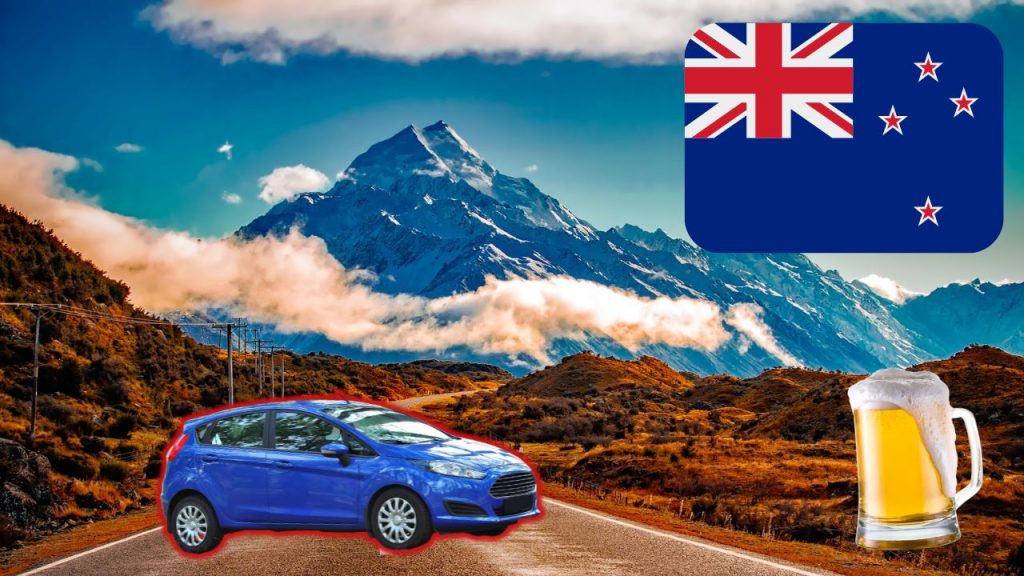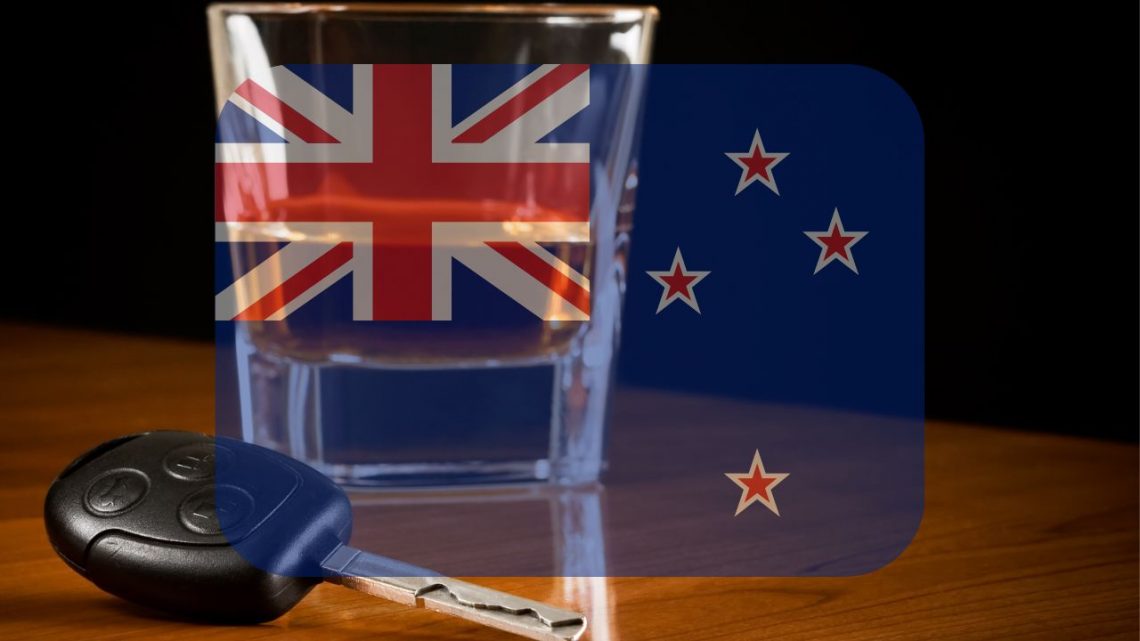New Zealand has a specific legal threshold for blood alcohol concentration (BAC) set at 0.05%. This level is typically reached after consuming two standard alcoholic drinks. However, drivers under the age of 20 are subject to a more stringent BAC limit of 0.00%.
Recognizing the importance of individual differences in alcohol’s impact on BAC is essential, as the effects can vary among individuals even when consuming identical quantities. Factors such as alcohol metabolism within the body can contribute to variations in BAC levels.
This article aims to give readers insights regarding driving under the influence in New Zealand. The information presented on this website does not endorse or encourage impaired driving in any location or country. It is consistently recommended to exercise responsible judgment and prioritize the safety of oneself and others when operating a vehicle.
According to statistics from 2020, alcohol-related traffic accidents in New Zealand accounted for approximately 12% of all reported incidents. These numbers highlight the concerning impact of alcohol consumption on road safety within the country. Recent news reports have indicated an alarming increase in alcohol-related traffic crashes over the past decade.
Drivers must abstain from operating a vehicle after consuming alcohol. Nevertheless, when driving is unavoidable after alcohol consumption, opting for safer transportation alternatives, such as authorized driving services or taxis, is recommended.
Before visiting any country, individuals should familiarize themselves with the specific regulations concerning driving under the influence in that location. Regularly utilizing a breathalyzer to monitor one’s blood alcohol level can ensure compliance with legal limits while driving.
For more detailed information regarding laws against drunk driving, please visit the official website of New Zealand’s Ministry of Transport.
Legal Alcohol Limit When Driving in New Zealand
As mentioned before, it’s extremely important to stick to the 0.05% BAC threshold to avoid strict penalties in New Zealand.
In order to identify your current blood alcohol concentration level, feel free to use our calculator. BAC charts are also good for estimating permissible alcohol consumption before driving. However, one must recognize that alcohol affects individuals differently, making these methods less universally reliable.
Using a certified alcohol breathalyzer is recommended for accurately measuring alcohol levels. This device provides a more precise assessment of an individual’s alcohol level.
Despite feeling subjectively sober, consuming alcohol can still impair a person’s ability to drive. In some cases, the negative effects of alcohol on driving skills may not become apparent until the individual is already behind the wheel in New Zealand.
Punishments for Drinking and Driving in New Zealand
Even consuming just a single bottle of beer can affect your driving ability. As your blood alcohol concentration increases, these impairments become more evident. Your coordination and decision-making skills can be compromised even at BAC levels as low as 0.010% to 0.029%.
Drivers must understand that drunk driving laws and penalties can differ from country to country. Being aware of the consequences of exceeding the legal BAC limit is crucial. Violating drunk driving laws can result in fines and other penalties.
Here is an overview of New Zealand’s penalties for drinking and driving.
For Drivers Below 20 Years Old
- If you are under 20 years old, there is a strict zero alcohol limit in place. This means you can face drink-driving charges if you choose to drive after consuming even a single drink.
- If your breath alcohol level measures less than 0.03% or 30 milligrams per 100 milliliters of blood, you may be subject to a fine of $200 and receive 50 demerit points.
- However, if your alcohol level exceeds 0.03%, you could face disqualification from driving, along with 50 demerit points, and may be subject to fines or imprisonment.
For Drivers Above 20 Years Old
- If your blood alcohol level falls between 0.051% to 0.080% or 51 to 80 milligrams per 100 milliliters of blood, you may face a fine of $200 and receive 50 demerit points.
- If your alcohol level exceeds 0.080%, you could face disqualification from driving and potential fines or imprisonment.
When Can You Drink and Drive in New Zealand?
Studies suggest multiple factors, such as gender, can impact an individual’s blood alcohol concentration.
The disparity in BAC levels between males and females can be attributed to the more significant presence of alcohol dehydrogenase (ADH) enzymes in males. These enzymes play a role in alcohol metabolism, producing faster alcohol processing in men than in women.
Drinking alcohol can harm vision and cognitive functions, significantly increasing the likelihood of accidents when driving. It is highly recommended to refrain from consuming alcohol before operating a vehicle.
The subsequent recommendations provide general principles for estimating permissible alcohol consumption prior to driving. Nevertheless, we reiterate that individuals may react differently to alcohol, rendering these suggested quantities not universally applicable.
How Many Bottles of Beer Can You Drink and Drive in New Zealand?

Body weight is vital in determining one’s blood alcohol concentration. BAC charts indicate that individuals with lower body weights tend to have higher BAC levels.
For instance, a man weighing 160 pounds (72 kg) who consumes a 12-ounce (350 ml) beer might reach a BAC level of approximately 0.02%. Conversely, a woman of similar weight may have a BAC of around 0.03% after consuming the same amount of beer. This comparison illustrates how gender affects the body’s alcohol processing.
We recommend limiting alcohol consumption to one or two beers if you plan to drive afterward in New Zealand.
How Many Wine Glasses Can You Drink and Drive in New Zealand?
A standard serving of wine is typically around 142 milliliters (5 ounces) and has an alcohol by volume (ABV) of 12%.
Considering the previous example, it is recommended to restrict your wine consumption to one or two glasses in New Zealand.
How Many Whiskey or Vodka Shots Can You Drink and Drive in New Zealand?
Distilled spirits like whiskey and vodka generally have an alcohol by volume of 40%.
It is advisable to restrict your intake of whiskey or vodka to one or two shots in New Zealand.
Sticking to Drink and Drive Laws in New Zealand
Alcohol consumption can potentially impair a driver’s abilities, posing a significant hazard to road safety. Drivers need to exercise caution and be mindful of the risks of drunk driving.
Adhering to New Zealand’s legal BAC limit of 0.05% is crucial for complying with the law and prioritizing the safety of all drivers. It is recommended to regularly monitor one’s BAC, even after consuming a small amount of alcohol, using a certified alcohol breathalyzer for accurate measurements.
When there is uncertainty about one’s ability to drive, it is highly advisable to consider alternative transportation options to ensure safety.
Please refer to New Zealand’s Ministry of Transport website for more comprehensive information on drunk driving laws and regulations.

